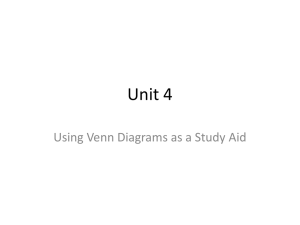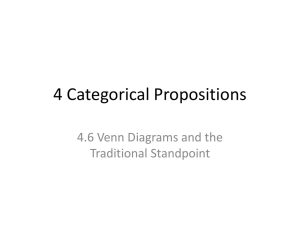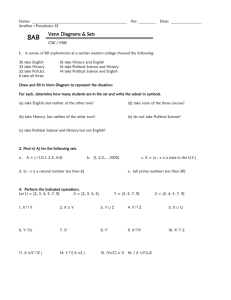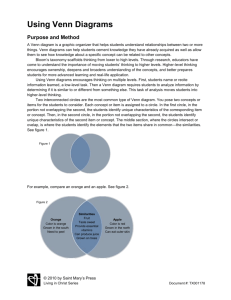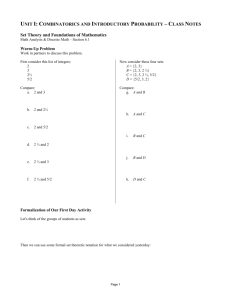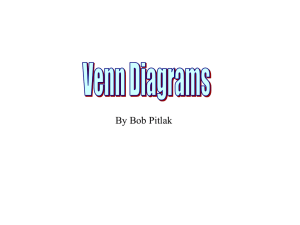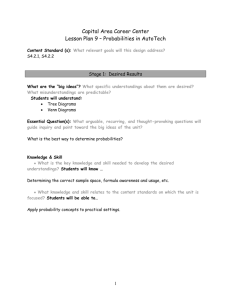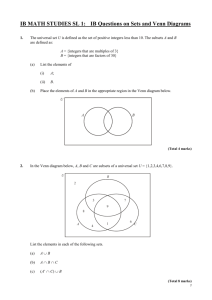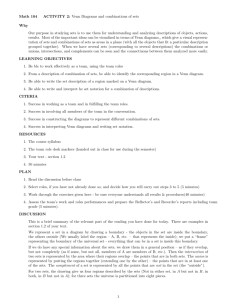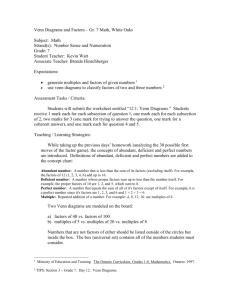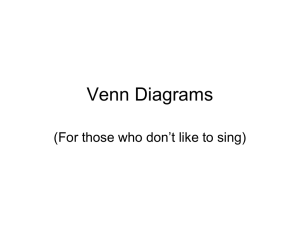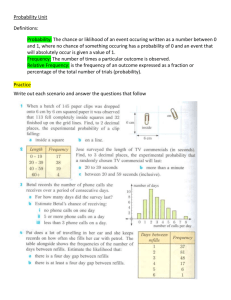venn diagram study skills Tracy Brooke
advertisement
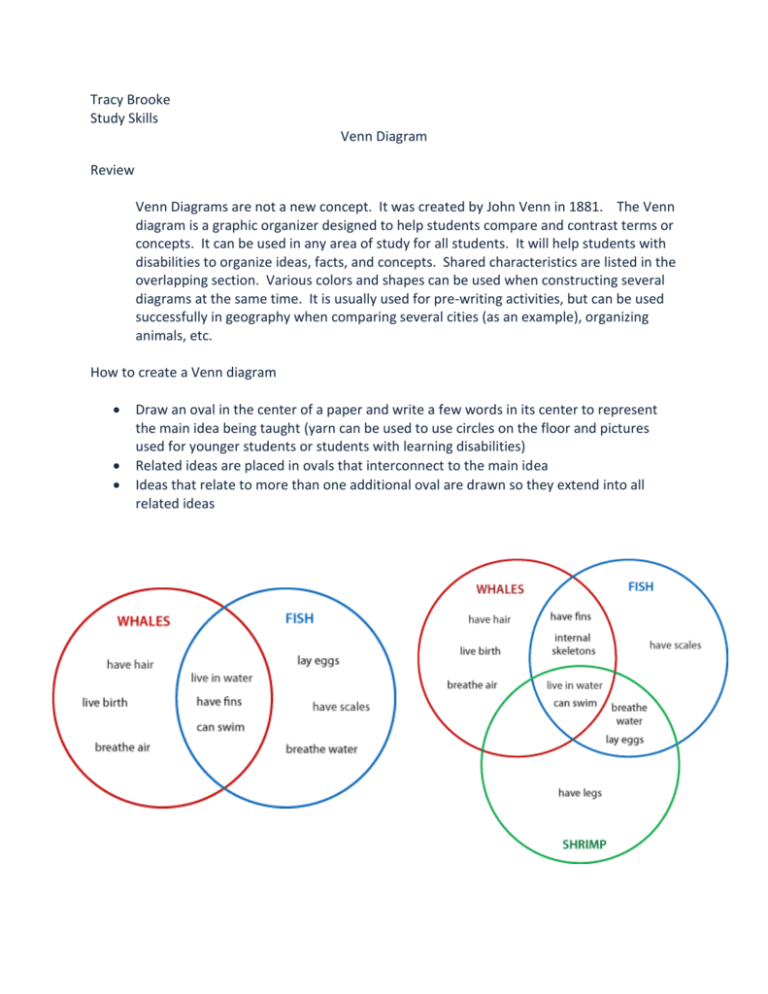
Tracy Brooke Study Skills Venn Diagram Review Venn Diagrams are not a new concept. It was created by John Venn in 1881. The Venn diagram is a graphic organizer designed to help students compare and contrast terms or concepts. It can be used in any area of study for all students. It will help students with disabilities to organize ideas, facts, and concepts. Shared characteristics are listed in the overlapping section. Various colors and shapes can be used when constructing several diagrams at the same time. It is usually used for pre-writing activities, but can be used successfully in geography when comparing several cities (as an example), organizing animals, etc. How to create a Venn diagram Draw an oval in the center of a paper and write a few words in its center to represent the main idea being taught (yarn can be used to use circles on the floor and pictures used for younger students or students with learning disabilities) Related ideas are placed in ovals that interconnect to the main idea Ideas that relate to more than one additional oval are drawn so they extend into all related ideas Four rules for using Venn diagrams To sum up, here are four rules for using Venn (and Venn-like) diagrams to encourage higher-order thinking in your classroom. (Walbert). 1. Use diagrams for classification, not just comparison. By using circles to represent sets and placing the elements within them, you can classify large numbers of things rather than simply comparing two or three. 2. Draw diagrams to meet your needs. Circles don’t have to be the same size, and they don’t have to overlap — you don’t even have to use circles! By drawing custom diagrams for each topic, you can correctly represent relationships among sets or characteristics. 3. Draw the universal set. Draw and label the universal set — the set of everything you might be discussing. That keeps the discussion within reasonable bounds, and makes a place for everything in it. 4. Scaffold students up to using progressively more complicated diagrams. If you work your way up slowly, students will learn to use graphic organizers not simply to keep track of knowledge they’ve already learned, but to push themselves to think about that knowledge in new ways and to learn more. Reference Walbert, D. (2006). Higher order thinking with Venn diagrams. Retrieved February 24, 2014, http://www.learnnc.org/lp/pages/2646 The Graphic Organizer is a website that has multiple information about using and history of a Venn diagram. (http://www.graphic.org/venbas.html).
